Life
Sign up for our newsletter
We summarize the week's scientific breakthroughs every Thursday.
-
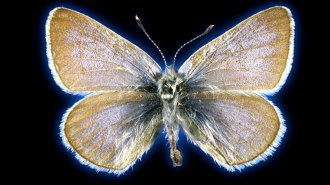 Animals
AnimalsThis butterfly is the first U.S. insect known to go extinct because of people
A 93-year-old Xerces blue specimen’s DNA shows that the butterfly is a distinct species, making it the first U.S. insect humans drove to extinction.
By Jake Buehler -
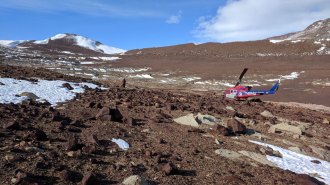 Microbes
MicrobesMissing Antarctic microbes raise thorny questions about the search for aliens
Scientists couldn’t find microbial life in soils from Antarctica, hinting at a limit for habitability on Earth and other worlds.
By Elise Cutts -
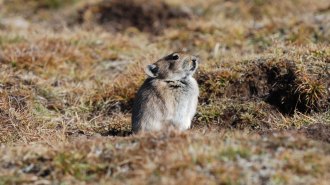 Life
LifePikas survive winter using a slower metabolism and, at times, yak poop
Pikas endure bone-chilling temperatures on the Qinghai-Tibetan Plateau by reducing their metabolism, and when possible, eating yak poop.
-
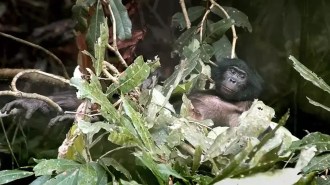 Animals
AnimalsClimate change may be leading to overcounts of endangered bonobos
A changing climate in Congo is affecting how scientists count bonobos’ nests, possibly skewing estimates of the great ape population, a study suggests.
By Pratik Pawar -
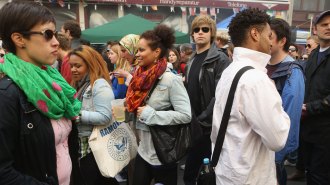 Humans
HumansOnly a tiny fraction of our DNA is uniquely human
Some of the exclusively human tweaks to DNA may have played a role in brain evolution.
-
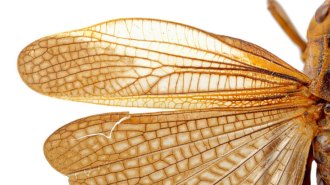 Paleontology
PaleontologyInsects had flashy, noise-making wings as early as 310 million years ago
The structure of a grasshopper-like insect’s fossilized wing suggests it crackled and reflected light, perhaps to attract mates or warn off predators.
-
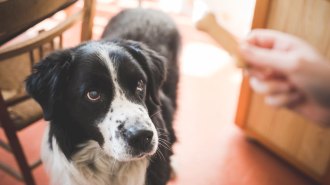 Animals
AnimalsWould dogs return the favor if you gave them treats? It’s complicated
An experiment in which dogs did not reciprocate food giving with humans may reveal something about the dogs, or about how science is done.
By Betsy Mason -
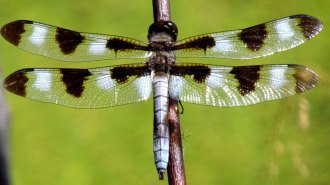 Animals
AnimalsClimate change may rob male dragonfly wings of their dark spots
Less colorful, cooler wings may be advantageous to dragonflies in a warmer world. But the change could mess with the insects’ mating.
By Jake Buehler -
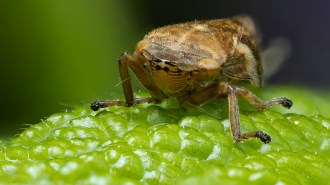 Animals
AnimalsFroghoppers are the super-suckers of the animal world
To feed on plant xylem sap, a nutrient-poor liquid locked away under negative pressure, froghoppers have to suck harder than any known creature.
-
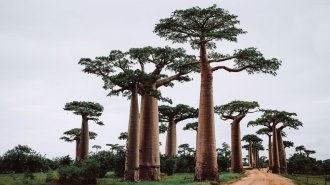 Climate
ClimateThe first step in using trees to slow climate change: Protect the trees we have
In all the fuss over planting trillions of trees, we need to protect the forests that already exist.
By Susan Milius -
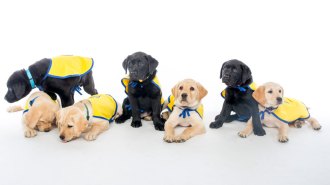 Animals
AnimalsDogs tune into people in ways even human-raised wolves don’t
Puppies outpace wolf pups at engaging with humans, even with less exposure to people, supporting the idea that domestication has wired dogs’ brains.
-
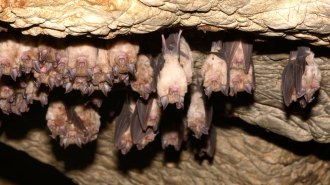 Health & Medicine
Health & MedicineOne mutation may have set the coronavirus up to become a global menace
A study pinpoints a key mutation that may have put a bat coronavirus on the path to becoming a human pathogen, helping it better infect human cells.